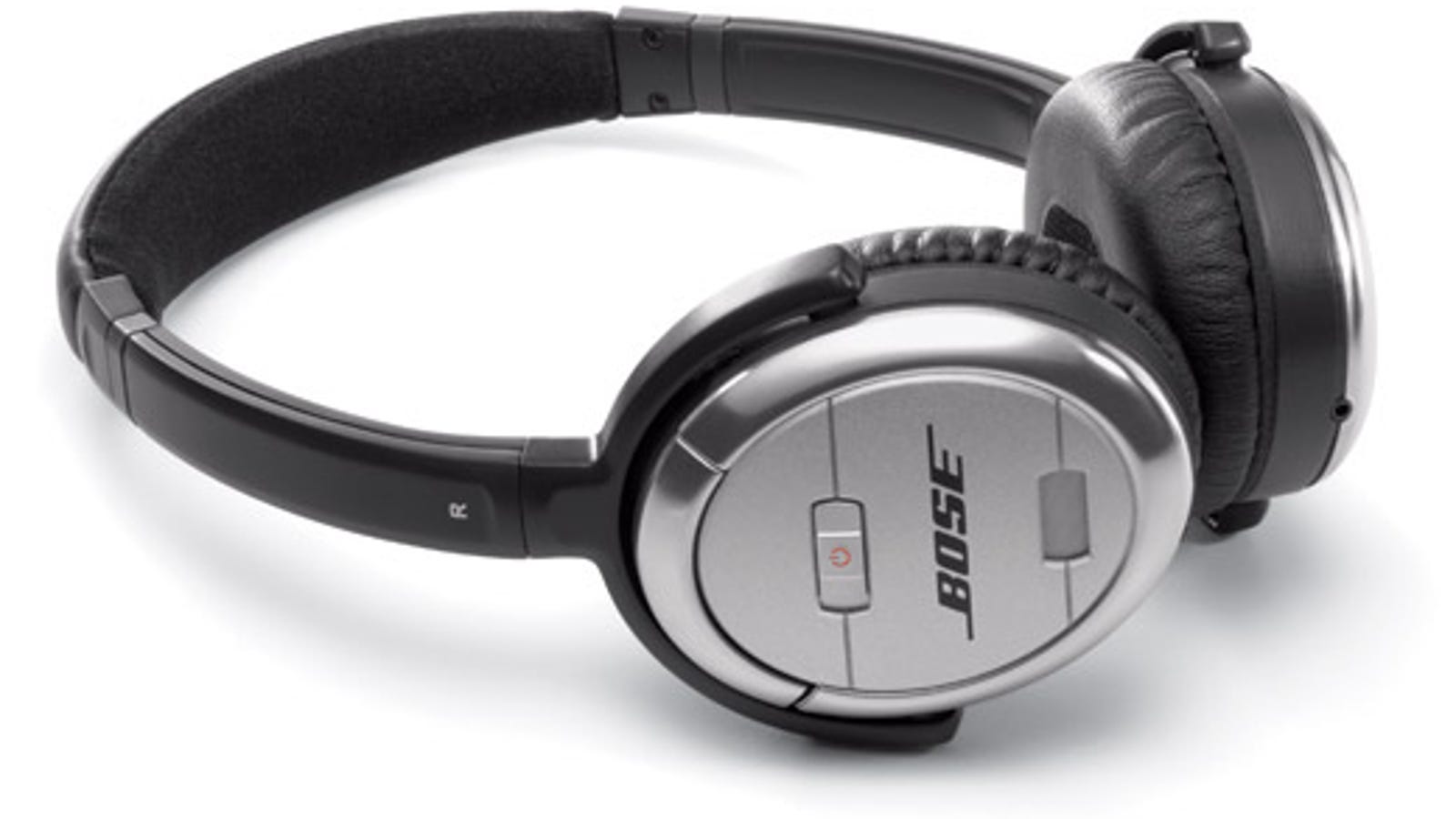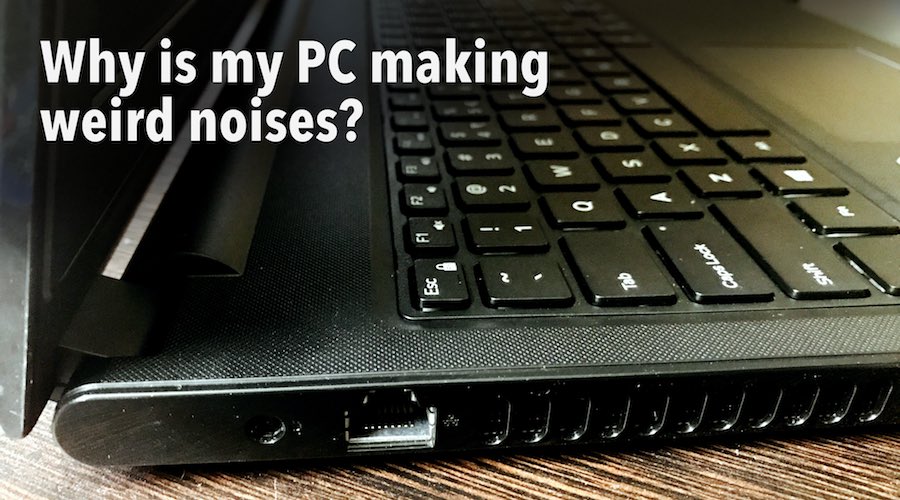Why Are My Headphones Making A Weird Noise

I had the EXACT same problem and fixed it from the above commentlike this:.You have to uncheck “Handsfree Telephony” from the “Services” setting on your Bluetooth device → “Control Panel” → “Hardware and Sound” → “Devices and Printers”.Select your device and right-click, open “Properties”,then go to the “Services” tab and uncheck “Handsfree Telephony”.I just fixed it like that.This works on Windows 7 and Windows 10.Mark it as your default device in “Control Panel” → “Hardware and Sound” → “Change system sounds” → “Playback”. (It may be good enoughto go to “Control Panel” → “Hardware and Sound” → “Sound”.)Select your Bluetooth device and select set defaults. At random times when I connected my bluetooth headset (on Windows 7), the sound would get really bad.After extensive research on Google, I found out that this seems to be because the Bluetooth protocol as it is right now does not provide sufficient bandwidth for the headset to use the microphone and high quality audio at the same time. This could be consistently proven when trying to use Skype with my bluetooth headset functioning as a microphone and audio output at the same time. The audio would get crappy 100% of the time.For some unknown reason, sometimes when I connected the headset to my computer, the sound would get horrible, even though I was not using its mic.
The fix I found was to simply give up using the headset's mic altogether. To do so, I disabled the bluetooth services for everything other than the audio output. This is how I've done it:. (with this, I believe we are disabling all bluetooth drivers but the audio driver, making no other item mess with the bandwidth - beware, if something you'd expect from the headset stops working, it could be because of this). Reconnect your headset (not 100% sure this is necessary, but it might be)The steps described above worked for me, but I don't have enough knowledge to state that they should work for others.
I hope they do. Had the EXACT same problem with my Energy Sistems BT8 Headphones and My Ideapad Y580.But managed to solve it on my own.The source of the problem seemed to be a faulty Bluetooth driver that somehow managed to mess up the protocol that the headphones work with. I removed the device ( Headphones ) from my computer thus removing any driver that it installed during the pairing, removed the Bluetooth driver on my laptop, then installed the Bluetooth driver via Microsoft driver finder, paired the headphones again and allowed the Microsoft to install the drivers it needed and voila! Everything is working perfect now. Great sound quality, clear sound with no background noise or CB radio like noise, and hell of a great bass. I had a similar problem to you.I have a cheap mono BT waterproof speaker and got a cheap Bluetooth USB dongle off eBay for my Windows 7 Ultimate PC. The speaker sounds great with my Samsung S3.After plugging in the dongle and waiting for the drivers to SLOWLY install, i was able to select the Bluetooth Mono Audio device (right click Windows volume button in tray, Playback Devices, right click the bluetooth profile/device and 'Set as Default Device') but that profile was limited to 8 Hz and couldn't be changed.
Of the three vocalizations dolphins produce, my iPhone 6 earbuds have started making two: whistles and clicks. This clip is the closest I could find to the sounds I'm hearing. Now of course, these noises only approximate dolphin-y noises. The whistle sounds more electrical, the clicks more mechanical, than the organic noises of actual mammals.
Audio sounded really bad from iTunes.Then i changed to the Bluetooth Audio Renderer (Stereo Audio) device profile and i got to choose between 44kHz and 48kHz:)Just a note for iTunes users, you need to make sure you right click the bluetooth profile/device and 'Set as Default Device' which will route all of your computer's audio to the bluetooth speaker/headset.Extra tip - make sure your BT speaker/headset is freshly charged. Mine ran out of battery while i was testing, this is why it sounded even worse with lots of noise as i was initially testing it. SOLVED: Other Bluetooth-connected devices are the cause. They may be interfering/using too much bandwidth.Before going on to other solutions given here, simply try disconnecting your Bluetooth mouse and/or keyboard while music is playing to your headset. The result will be instantaneous!I had this same problem and tried all the solutions given in this forum without any result (including uninstalling/reinstalling the Bluetooth drivers which is always unsettling).However, after reinstalling the BT drivers, when reconnecting my devices, I decided to reconnect the headset BEFORE my BT-connected mouse.
Lo and behold, the headset sound was crystal clear. Then I reconnected the mouse, and the issue restarted.Also, one of the solutions give is to disable the Hands-Free profile from the Sound settings. This will have no incidence on my solution; both profiles work just fine. My problem was really just the mouse.
Where Speaker Noise Can Come FromThere are dozens, maybe hundreds of explanations for unwanted sounds coming from your speakers. Luckily, the most common issues are fairly obvious.
Broadly speaking, we can break them down into three categories: problems that originate from the physical speakers, the cable connection, and from the PC itself.It’s easy enough to nail down which part of your speaker setup is at fault. To see if the speakers are the problem, simply plug them into an audio source other than your PC—like a phone or an MP3 player. Note that it’s perfectly normal to hear pops and buzzes as you disconnect the audio jack and plug it into something else, but if you continue to hear electronic interference even after plugging it in, you can rule out your PC as the problem. You can perform the same test in reverse, too: get another set of speakers or headphones and plug them into your PC.
If you still hear the unwanted noises, your PC is likely to blame.If the problems continue (and it’s possible to use another cable with your speakers or headphones), then try replacing the cable. If you hear clearer sound with no interference, then the cable was the likely culprit. Usually this means that either the connector on the end has some kind of physical defect causing a poor connection with the audio source, or the cable itself is poorly shielded. What you’re hearing is electromagnetic interference from your PC or other electrical devices in the room.
Civilization vi mac download. Civilization VI offers new ways to interact with your world, expand your empire across the map, advance your culture, and compete against history’s greatest leaders to build a civilization that will stand the test of time. Play as one of 20 historical leaders including Roosevelt (America) and Victoria (England).

The fix here is simple enough: just use a different cable, preferably one with a high-quality jack and better shielding.If the speakers are the problem, it’s likely that they’re damaged. You might be able to isolate specifically which speaker is damaged by listening closely, especially if you have a subwoofer or an elaborate surround sound setup. At this point you need to replace it, either with a new set or if you’re still within the speakers’ warranty period.If the problem is in the cable and it’s not possible to swap it out, though this usually isn’t worth it for cheaper speakers.If, however, you’ve narrowed the problem down to your PC you have a few potential solutions. Reduce Electrical Interference From the PCRELATED:If you’ve determined that your computer itself is the problem, you’re not alone. Most PCs sold today that’s directly attached to the motherboard. This makes things cheaper and less complex, but without proper electrical shielding, it leaves the audio jacks vulnerable to interference from the CPU, graphics card, memory, and just about every other component in your computer. This can cause a buzzing or whining sound in your speakers and headphones.There are a few things you can do to change this:Switch to a different audio port.
Most full-sized desktop computers have one headphone jack on the front of the case for convenience, and another on the back for those who prefer a cleaner look. Whichever you’re using, try the other to see if the unwanted sounds persist.
(If multiple headphone jacks are present, plug it in to the green one.)Install a full sound card. Discrete sound cards aren’t as widely used as they used to be, but their PCI connections are separate from the motherboard. They also use dedicated, high-quality components to output pure sound in digital and analog formats. Installing a sound card in a standard desktop is not difficult—it has basically the same steps as a graphics card installation—and there are.Use a USB sound card.
If you’d rather not open your computer case, or you have a a laptop that’s causing sound problems, you can get a USB-based sound card. Since these gadgets are pulling digital audio directly from the operating system instead of an electrical component on the motherboard, you shouldn’t hear any interference when you plug in your speakers or headphones to the audio jack on the external sound card. Like standard sound cards, USB models come in a variety of complexities and qualities, but versions with simple 1/8th-inch inputs and outputs can be had for. There are nicer versions with extra features or higher-quality prodoucts, like the or, that go into the hundreds of dollars.(Note: a USB sound card can’t improve the sound that comes from the speakers that are part of a laptop’s case.)RELATED:Switch to USB speakers or headphones. This solution is basically the same as the USB sound card, only the USB sound card is included in a new set of speakers or headphones.

Why Are My Headphones Making A Weird Noise Meme
This is less elegant than the other options—speakers with a USB connection will only work with a computer, after all—but if you were only using your original set for your PC anyway, it shouldn’t be a problem. You can get basic stereo USB speakers, though obviously more expensive ones will sound better. USB-based headphones are usually more expensive, since.Image credit: /Flickr.